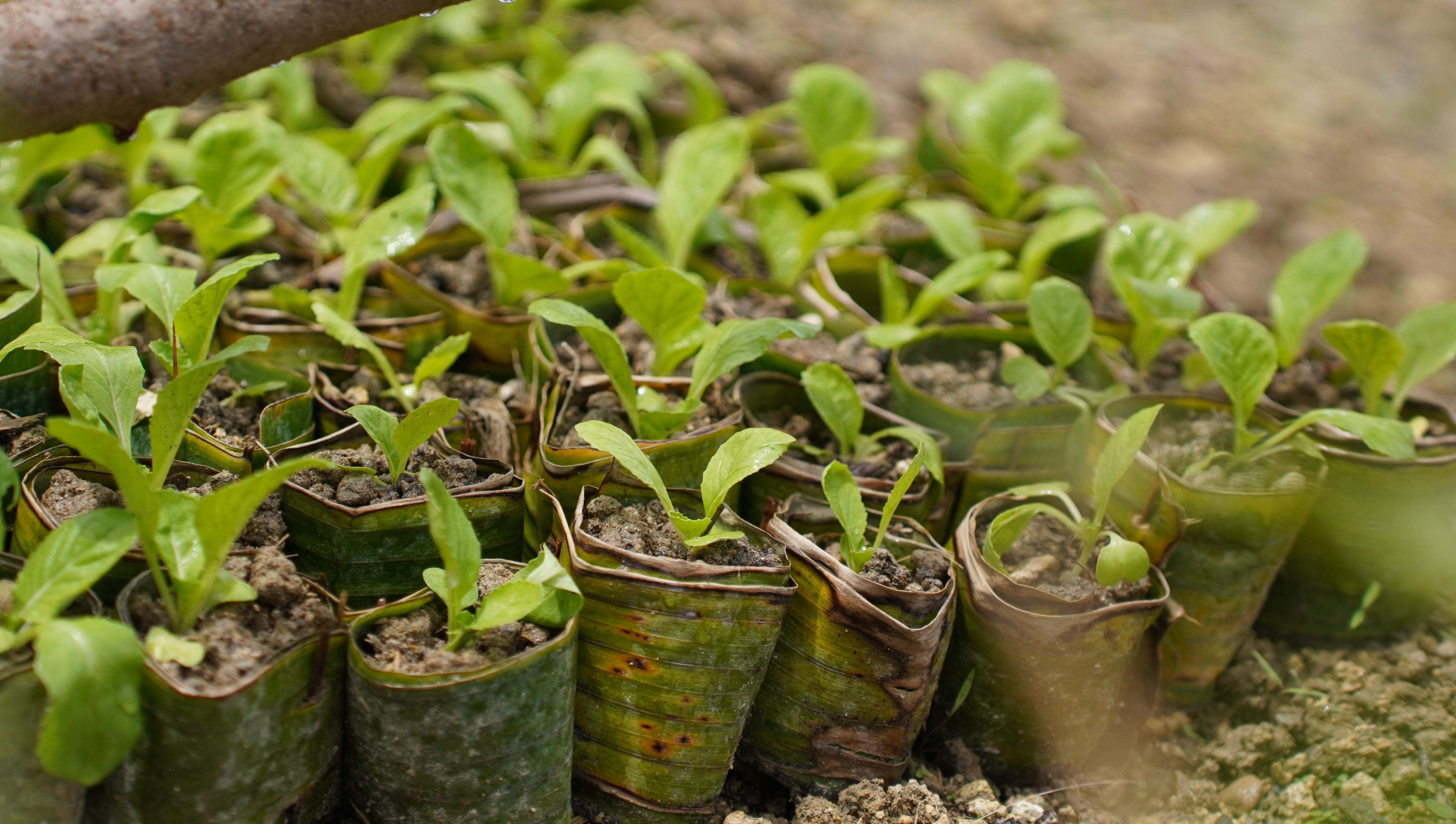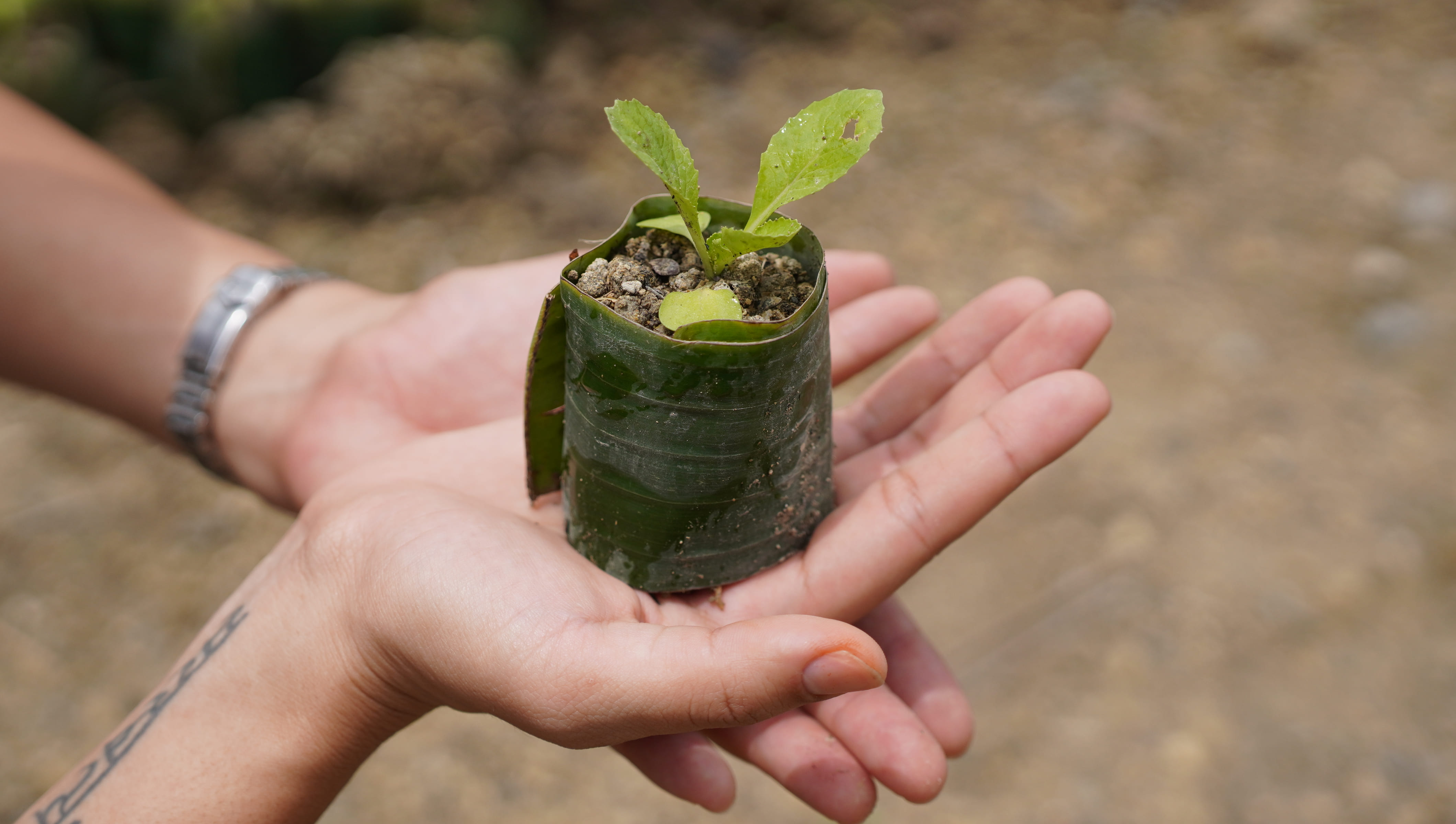
Kokeran: seedling tubes made from banana leaves, used as a natural medium for seed germination
In Noinbila Village, South Central Timor Regency, East Nusa Tenggara, farmers are rediscovering simple yet effective ways to grow food more sustainably. Through Kopernik’s PANGAN program—an initiative to strengthen food sovereignty and improve nutrition in Timor—they are collaborating to explore how traditional practices and natural materials can serve as effective alternatives to chemical inputs in farming. Their efforts highlight that resilient farming communities are at the heart of food security and a sustainable future.
As part of the PANGAN program’s farmer learning activities, the community gathered to explore farming methods that nurture the soil, use natural materials, and ensure that agriculture can continue across generations. One of the key practices discussed was kokeran—seedling tubes made from banana leaves, used as a medium for germinating chili seeds. While seed germination is nothing new to these farmers, , this time the process took on a new twist - the chili seeds were dried using a solar dryer, one of Kopernik’s simple technologies designed to reduce post-harvest losses in SoE, a region with a humid climate.
The session began with farmer: Albinus, demonstrating how to make the kokeran. He shared the tools and materials needed, the step-by-step process, and useful tips, why chili seeds should be extracted with a toothpick, why the kokeran should be opened on the seventh day, and why the soil is best taken from beneath a bamboo tree. Afterward, everyone tried the method together, turning shared knowledge into hands on practice.

One of the kokeran made by the farmers
The chili seeds were prepared by drying whole chilies—both hybrid and local varieties—in a solar dryer, without separating the seeds from the flesh. Once dried, the seeds were extracted to be used for planting, while the dried chili skins could be ground into chili powder. The drying process typically takes about two weeks, though according to Yunri, it can be finished in as little as four days depending on the weather.
So, what exactly is kokeran? Kokeran is an eco-friendly alternative to plastic polybags. It’s made from banana leaves cut into strips about 5–7 cm wide, rolled into small tubes, and secured with toothpicks or thin bamboo sticks. The result resembles a large and long wrap. Unlike plastic polybags, kokeran doesn’t need to be removed when transplanted. The banana leaves naturally decompose and enrich the soil, making kokeran a regenerative farming tool.
For the growing medium, farmers mix fertile soil taken from beneath bamboo trees, river sand to improve aeration (as a substitute for rice husks), and animal manure. The ratio is one bucket of each ingredient—soil, sand, and manure—all sifted and thoroughly mixed. The kokeran tubes are arranged tightly on a table or rack, filled with the soil mixture, and planted with one chili seed per tube. Watering is done using bottles with small holes in the cap, allowing water to drip gently like rain so the banana leaves aren’t damaged. The kokeran are then covered with banana leaves weighted down with wood to protect them from rain and opened on the seventh day.
Starting from day eight, the seedlings are gradually exposed to sunlight. Between days 18 and 30, they must be transplanted before the roots grow out of the kokeran; otherwise, the plants may become stressed from being confined. The advantage of this method is that the kokeran can be planted directly into the soil—no need to remove them. The banana leaves and toothpicks will decompose naturally, adding nutrients to the soil.
By using kokeran, farmers are practicing regenerative agriculture—a farming approach that emphasizes sustainability, avoids harmful chemicals, and utilizes biodegradable natural materials. This small step shows that innovation doesn’t always mean new technology; sometimes, innovation means returning to nature and reviving traditional practices that sustain both people and the planet.


